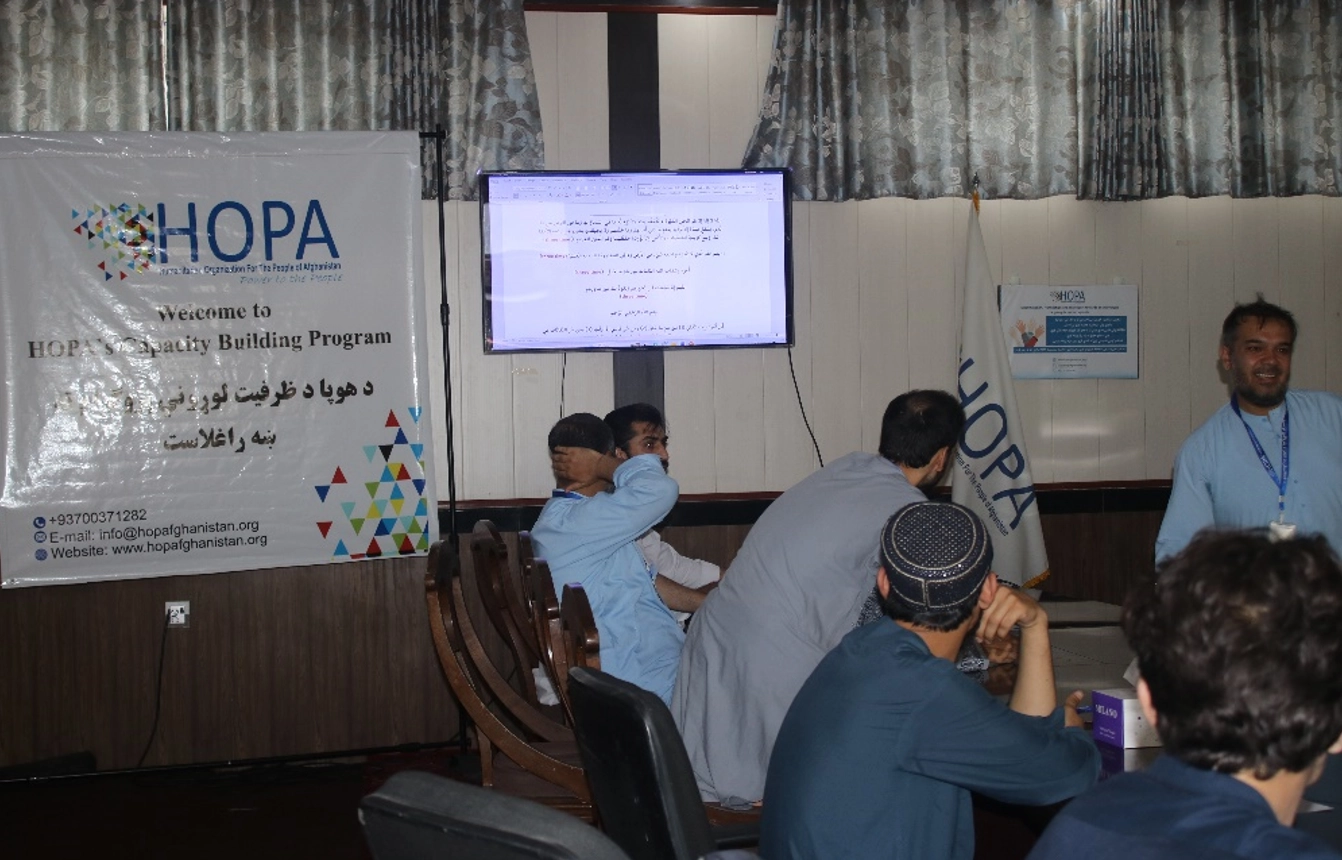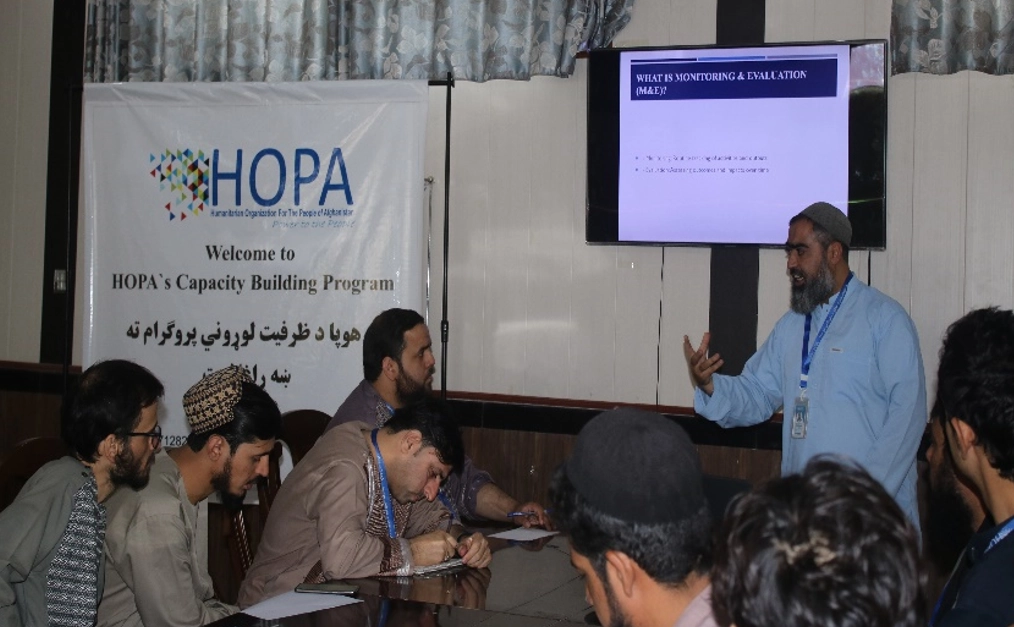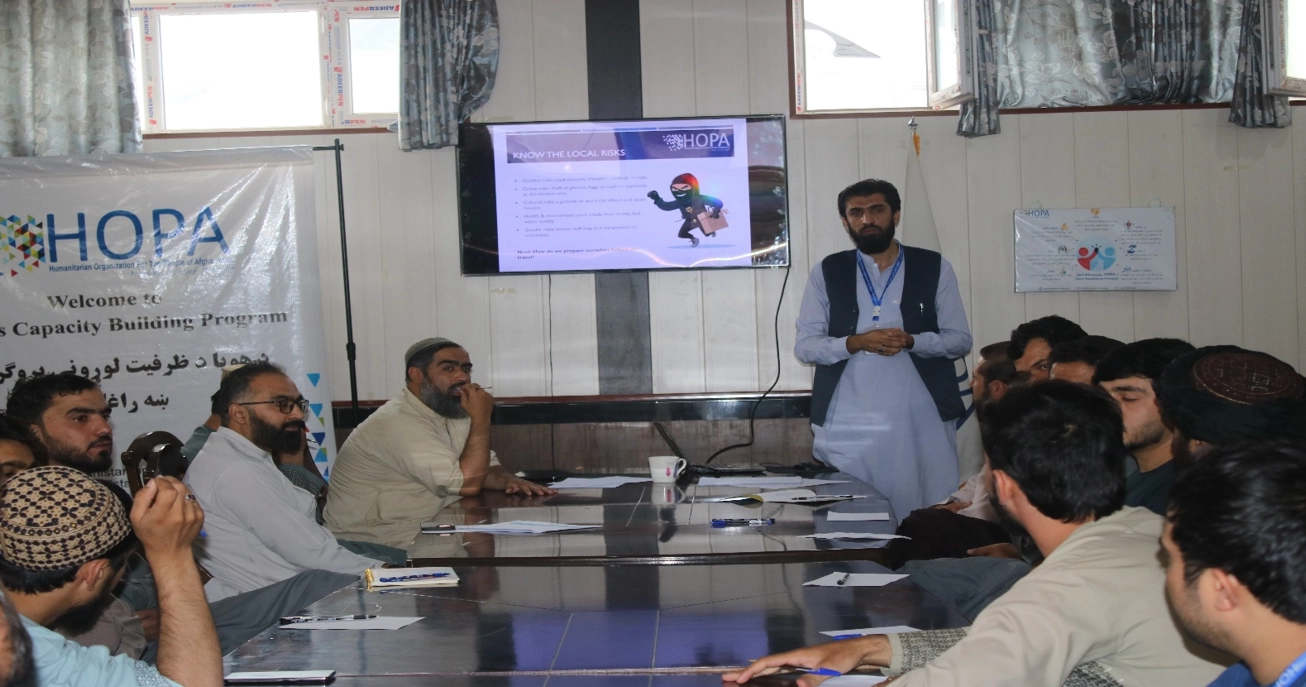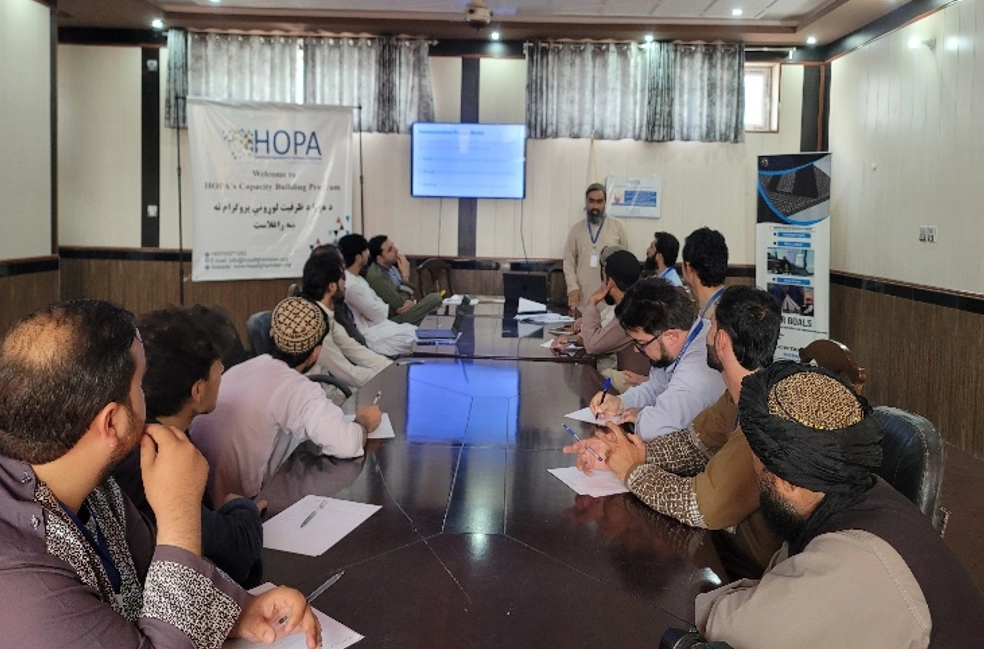
Ethics Training for HOPA Staff
1. Background and Rationale
In alignment with HOPA’s commitment to integrity, accountability, and professional excellence, a need assessment was conducted to evaluate ethical awareness and practice among staff. The assessment identified key gaps in understanding and applying ethical standards in humanitarian operations, including issues related to confidentiality, conflict of interest, impartiality, and respect for human dignity.
Based on these findings, an Ethics Training session was organized for all HOPA staff to reinforce core organizational values, improve ethical decision-making, and mitigate risks associated with misconduct or ethical lapses in field operations.
2. Training Objectives
The main objectives of the Ethics Training were to:
- Enhance staff knowledge on humanitarian ethics and organizational code of conduct
- Foster a culture of transparency, respect, and responsibility
- Strengthen capacity to recognize and respond to ethical dilemmas
- Promote compliance with HOPA’s operational standards and donor expectations
3. Training Content and Methodology
Topics Covered:
- Definition and principles of ethics in humanitarian work
- HOPA’s Code of Conduct and ethical guidelines
- Types of ethical dilemmas in the workplace
- Reporting mechanisms and whistleblower protection
- Real-life case studies and role-play exercises
Training Methods:
- PowerPoint presentation
- Group discussions
- Scenario-based learning and case studies
- Q&A and feedback session
The training was designed to be interactive, engaging, and practical, encouraging open dialogue and shared learning among staff.
4. Participants
A total of [insert number] staff members from different departments participated in the training. Attendance included program officers, support staff, field coordinators, and administrative personnel. Their diverse perspectives enriched the discussion and contributed to a dynamic learning environment.
5. Outcomes and Feedback
The training was well-received by participants, who expressed appreciation for the relevance and timeliness of the topic. Key outcomes included:
- Improved understanding of ethical principles and behavior
- Increased awareness of how to handle ethical issues in the field
- Strengthened commitment to uphold organizational values
- Positive feedback on interactive components and real-world examples
Feedback Highlights:
“The training clarified many doubts I had about ethical practices.”
“It was good to discuss real cases and hear others’ experiences.”
“I now feel more confident in reporting unethical behavior.”
6. Recommendations and Follow-Up
To build on the momentum of this training, the following recommendations are proposed:
- Conduct regular refresher trainings every 6-12 months.
- Establish a clear, confidential reporting mechanism accessible to all staff.
- Integrate ethical decision-making modules into staff onboarding.
- Appoint ethics focal points in each regional office.
7. Conclusion
The Ethics Training conducted on 13 July 2025 was a crucial step toward embedding a stronger ethical culture within HOPA. It has laid the foundation for a more aware, accountable, and principled workforce, which is essential in delivering humanitarian assistance with integrity and respect for those we serve.


